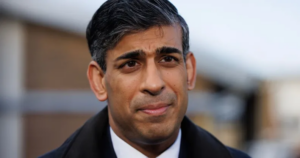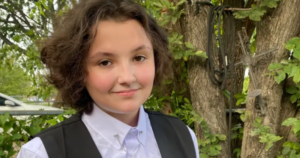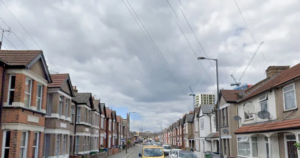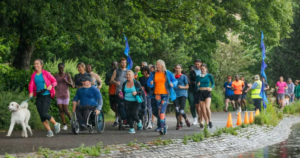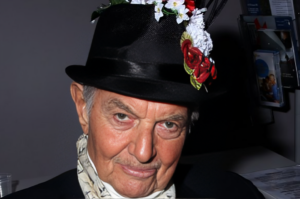The global divide on homosexuality persists. Despite major changes in laws and norms surrounding the issue of same-sex marriage and the rights of LGBTQ+ people around the world, public opinion on the acceptance of homosexuality in society remains sharply divided by country, region, and economic development.
Even in a country as developed as the USA, not everything is hunky-dory. The LGBTQ+ community across the states of the USA is still fighting battles for equal rights, legal protection, economic security, and acceptance. Yes, queer people in America are more visible than ever, but they are still not equal.
In addition, recent anti-LGBTQ+ legislations and laws accompanied by false representation of the community by homophobic people, and attacks on gay bars and drag shows make it more difficult for people to see the real picture and to understand the community closely.
Even the historical ruling on June 26, 2015, didn’t end the struggle for equality and protection for the queer community. Across the country, LGBTQ+ Americans still face legalized discrimination under the law when it comes to education, housing, jobs, parenting, and even prison.
Embed from Getty ImagesFlorida and Montana are among the worst for the LGBTQ+ community
According to the fourth annual State LGBTQ+ Business Climate Index from the global LGBTQ+ business advisory Out Leadership, New York had the most equitable climate for the LGBTQ+ community while South Carolina ranked the lowest.
The index has ranked states in five areas: work environment, legal protections, youth and family support, health access and safety, and political and religious attitudes. States at the top tended to get more inclusive over the past year, while their lower-ranked peers became less tolerant or didn’t move from where they were in 2021.
Todd Sears, Out Leadership’s founder & CEO says, “The states that are getting worse for LGBT people are also getting worse for women and people of color. Texas, Alabama, Mississippi, South Dakota, and Tennessee, all of those are states where reproductive rights are being threatened, Black folks are being disenfranchised.
Florida – which has enacted what opponents call a “Don’t Say Gay” bill that would restrict discussion of LGBTQ+ people in the classroom – has witnessed a drop in ranking by 3.4 points. Meanwhile, research by Out Leadership in 2020 and 2021 found that 24% of LGBTQ+ employees have relocated to a more welcoming city, and 36% of LGBTQ+ workers say they would think about moving to a more accepting state.
Anti-LGBTQ+ Iowa House Bills
The Iowa Senate has passed a bill that would ban gender-affirming care for minors and a bill that would restrict bathroom use for transgender people. SF 538 would ban ‘gender transition procedures,’ including puberty blockers, hormone therapies, and other related surgeries for Iowans under the age of 18.
Another bill, SF 482 passed would restrict bathroom use for transgender people. It would require transgender people to only use locker rooms or restrooms that correspond with the sex on their birth certificate.
The bill also gives Iowans power to submit a complaint if they think someone is using the wrong bathroom at school. Those complaints would be received by the attorney general who is then directed to investigate.
Tennessee Takes Another Hit
Tennessee House lawmakers have advanced a second bill targeting drag shows in the state, seeking to expand a first-of-its-kind law passed last week that criminalizes certain drag performances.
The bill that passed in Tennessee last week restricts “adult cabaret performances” in public or in the presence of children, and bans them from occurring within 1,000 feet of schools, public parks, or places of worship.
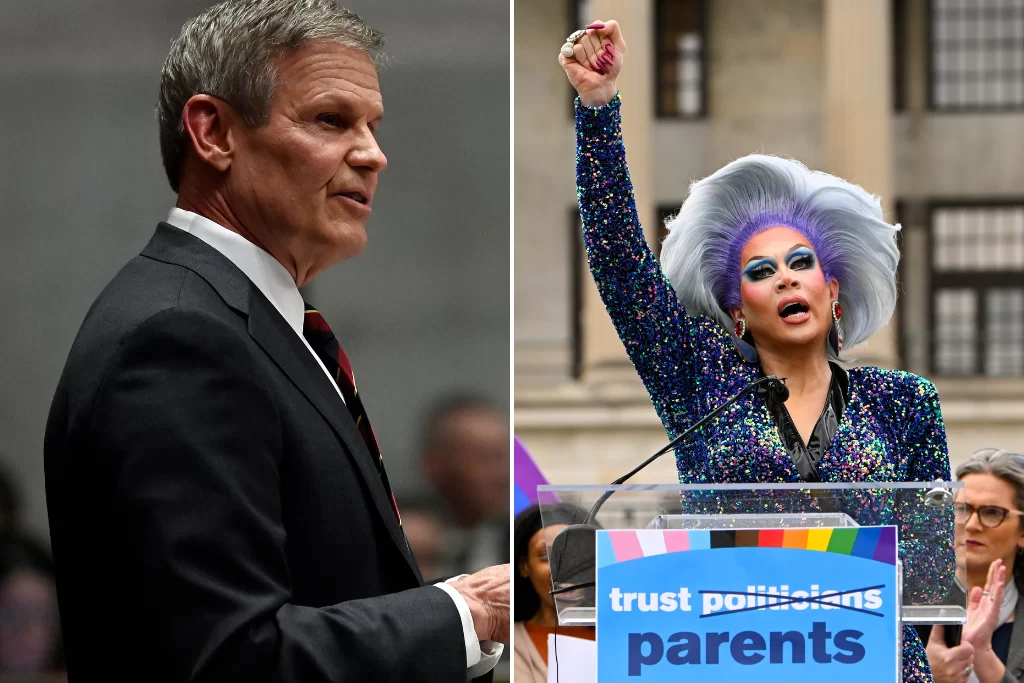
Those found violating the anti-drag law face misdemeanor charges in the first instance, punishable by a fine up to $2,500 and/or up to a year in jail. Those found for subsequent violations face a felony charge, punishable by up to six years in jail.
Not just this! So far, 18 states have banned transgender athletes from competing in sports teams for the gender they identify with, and have passed legislation that would restrict transgender people’s access to gender-affirming healthcare.
Adoption Policy for LGBTQ+ People
A lot has changed in the more than 40 years since the first gay couple adopted a baby in California in 1979. In 2016 Mississippi became the last state to overturn laws banning LGBTQ+ adoption, paving the way for same-sex couples looking to start or expand their families.
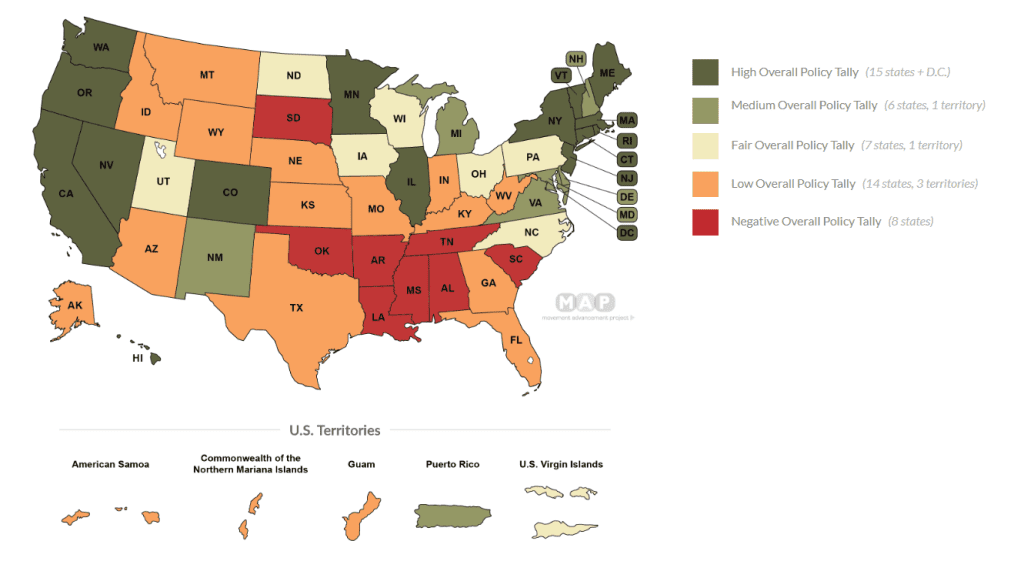
But even though adoption nondiscrimination laws and policies prevent adoption agencies and officials from discriminating against LGBTQ parents and families, 20 percent of the LGBTQ population in America lives in a state that permits state-licensed child welfare agencies to refuse to place and provide services to children and families, including LGBTQ people and same-sex couples, if doing so conflicts with their religious beliefs. According to the Movement Advancement Project, only 27 states and one territory have laws or policies that expressly prohibit discrimination in adoption based on sexual orientation or gender identity.
The community not only suffers in civil life but also faces discrimination in prison.
The non-profit, non-partisan Prison Policy Initiative is known for producing cutting-edge research and advocacy campaigns to create a more just society.
According to the briefing shared on their official website in 2021, which is written by Alexi Jones, LGBTQ+ individuals are subject to particularly inhumane conditions and treatment in prisons.
LGBTQ+ youth in the juvenile justice system
For LGBTQ people, criminal justice involvement often starts at a young age. LGBTQ youth are extremely overrepresented in the juvenile justice system. Researchers estimate that 20% of youth in the juvenile justice system are lesbian, gay, bisexual, questioning, gender nonconforming, or transgender compared with 4-6% of youth in the general population. The same research shows that 40% of girls (who were assigned female at birth) in the juvenile justice system identify as LBQ and/or gender non-conforming. This overrepresentation is largely due to the obstacles that LGBTQ youth face after fleeing abuse and lack of acceptance at home because of their sexual orientation or gender identity. To survive, LGBTQ youth are pushed towards criminalized behaviors such as drug sales, theft, or survival sex, which increase their risk of arrest and confinement.
Lesbian, gay, and bisexual adults in the criminal justice system
High rates of criminal justice system contact continue into adulthood. The data from the National Survey on Drug Use and Health (NSDUH) revealed in 2019 shows that gay, lesbian, and bisexual individuals were 2.25 times as likely to be arrested in the past twelve months than straight individuals. This disparity is driven by lesbian and bisexual women, who are 4 times as likely to be arrested than straight women. Meanwhile, gay and bisexual men are 1.35 times as likely to be arrested than straight men.
Researchers analyzing the most recent National Inmate Survey found that LGB people are incarcerated at a rate over three times that of the total adult population.
The high rates of gay, lesbian, and bisexual people behind bars can in part be attributed to the longer sentences courts impose on them. The same study of the National Inmate Survey data found that in both prisons and jails, lesbian or bisexual women were sentenced to longer periods of incarceration than straight women. And gay and bisexual men were more likely than straight men to have sentences longer than 10 years in prison.
While locked up, gay, lesbian, and bisexual people are subjected to especially inhumane treatment. The National Inmate Survey study showed these “sexual minorities” were more likely to be put in solitary confinement than straight men and women in prisons and jails. This is often done in the name of “protecting” queer individuals behind bars, despite the well-documented, long-lasting harms of solitary confinement.
Anti-gay policies can cost states money
Politicians, anti-LGBTQ+ organizations, and members have to understand that their activities like giving hate speeches, spreading false information, and fueling fear among the misguided population are not just going to affect the LGBTQ+ members but the whole economy.
There is an economic price for states that are seen as intolerant. On the other hand, implementing anti-discrimination measures could lead to a 3% increase in GDP, cited a report from the Williams Institute, a UCLA think tank that researches law and public policy focused on sexual orientation and gender identity.
By – Hemangi (She/Her), Content Writer, Happening Out Television Network
Walk With Faith, Live With Pride
Author












